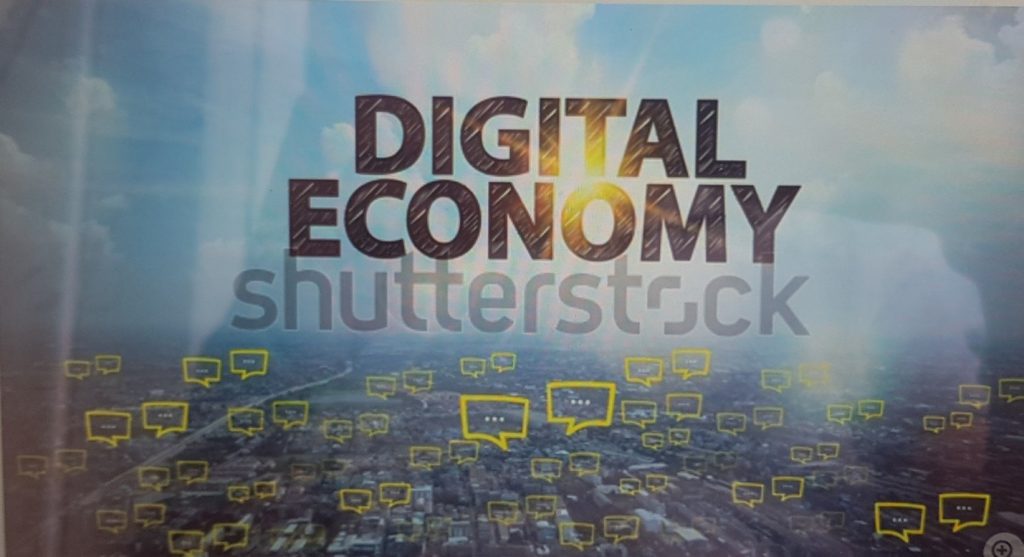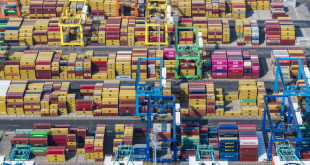Published:February 07,2022

Africa’s cultural goods sector is estimated to employ about half a million people
The sector generates US$4.2 billion in revenues
Digital platforms are fueling the growth of performers, artists, musicians, and others by allowing them to reach global audiences
On January 12, 2022, Warner Music Group (WMG) announced their majority acquisition of Africori – the first major acquisition of the year in the entertainment industry[1].
Momentum has been building toward this as WMG first invested in Africori in April 2020 at the height of the pandemic[2], followed in December 2020, with Africori signing a global sub-publishing deal with Warner Chappell Music France[3].
In 2019, WMG signed a partnership deal with a leading Nigerian record label, Chocolate city[4] and a licensing deal with Boomplay[5] which raised US$20 million[6]. That same year, French media giant, Canal+ acquired Nigerian production studio, ROK film studios from Video on Demand (VOD) company IROKO TV[7].
In September 2018, Netflix acquired the global rights to Genevieve Nnaji’s comedy, Lionheart[8]. That same year, Black Panther became a global success as the first African themed and predominantly black cast movie, grossing about US$13.5 billion at the global box office[9].
On January 19, 2022, Carry1st, a South African publisher of social games and interactive content across Africa raised a US$20 million Series A extension led by Andreessen Horowitz (a16z) [10]. These brought significant attention to Africa’s creative digital economy – the subject of this essay.
Africa’s creative digital economy, which includes music, film, art, fashion, cultural artefacts, apps and games is not only creating wealth for the creators but also contributes to the gross domestic product, exports and boosting development outcomes according to the United Nations Conference on Trade and Development (UNCTAD).
“The creative economy is recognized now as a tool of sustainable development,” says Marisa Henderson, Chief of the Creative Economy Program at UNCTAD.
UNCTAD defines this “creative economy” aka “orange economy” as the sum of all the parts of the creative industries, including trade, labour, and production.
They have tracked trade in creative goods and services for close to twenty years and consistently found that the growth rate of creative economy exports outpaces that of other industries[11].
Africa’s cultural goods sector is estimated to employ about half a million people and generate US$4.2 billion in revenue[12].
“Digitization is bridging the gap between the creative economies of developing countries and world markets,” says Makhtar Diop, Managing Director of the International Finance Corporation (IFC).
“This is important because the transmission of cultural wealth can mobilize social change and provide jobs for young people”.
According to the World Trade Organization (WTO), digital platforms are fueling the growth of performers, artists, musicians, and others by allowing them to reach global audiences[13]. The Creative Africa Nexus Summit (CANEX) in November 2021 in South Africa, focused on Africa’s creative and cultural industries bringing together creativity and technology[14].
Revenue from digital music streaming in Africa is expected to reach US$500 million by 2025, up from only $100 million in 2017, according to the World Bank[15]. Music streaming now accounts for more than half the revenue of the global music industry. Worldwide, online video subscriptions hit 1.1 billion in 2020, a 26% rise from the previous year[16].
MUSIC: Africori is the largest digital music distribution and rights management company in Sub-Saharan Africa, servicing a wide range of African artists (about 7,000) and serving 850 clients from operations in Lagos, London and Johannesburg where its leading artist Master KG launched Jerusalema (feat. Nomcebo) which became a global smash during the pandemic.
According to Yoel Kenan, founder and CEO of Africori, “African music is inspiring creatives from around the world”.
Alfonso Perez Soto, EVP, Eastern Europe, Middle East and Africa, Warner Music, said “I’m delighted that we’ll be working together with Africori – and Yoel Kenan in particular – as they’ve been pioneers, fighting for the interests of artists and the music industry in Africa. We can harness the power of our global network to take their great African music to a truly global audience.”
Phiona Okumu, Spotify’s Head of Music for sub-Saharan Africa, believes that the African music industry is at a tipping point. “We have artists already signing with the biggest labels in substantial deals because everyone can see quite clearly that demand is high, and the world is ready for African pop music”. Sauti Sol, the pop band from Kenya, has gained international attention.
FILM: Africa’s creative digital economy is gaining global attention also in the film/streaming sector. At the height of the pandemic, Netflix released its first two original African TV series, ‘Queen Soto’ and ‘Blood and Water'[17].
Streaming services such as Netflix, Amazon and movie studios, including Disney and the Cape Town Film Studios are investing heavily in African productions[18]. Disney Animations has partnered with Ugandan based Kugali to bring an Africa-themed animated sci-fi series, Iwaju, to the Disney Plus service in 2023[19].
Iroko TV announced last year that it was going to list on the London Stock Exchange to raise capital to compete with these global players entering the African market[20]. Africa’s Streaming Video-On-Demand (SVOD) users is estimated to reach 13 million by 2025 according to projections by Digital TV Research[21].
According to PWC, Nigeria’s film industry known as Nollywood which is the largest private employer in Africa is one of the fastest-growing creative industries in the world. Nollywood has the potential to become Nigeria’s greatest export with a compound annual growth rate of 19.3% from 2018 to 2023[22].
SouthBox Entertainment based in Atlanta, USA whose founder Jon Gosier lived in Uganda at some point – was inspired to invest in Defiant Entertainment’s “Rise” a film on the terror group, Boko Haram [23]. Southbox has financed one feature film with a theatrical release and three feature films with streaming releases to date.
SouthBox Entertainment is working with some local partners to launch an initiative called the Africa Media Trust Fund to direct investment towards more African film and television productions.
South African entertainment company MultiChoice has been launching new TV channels in Ghana, Uganda, Ethiopia, Angola and Mozambique in the last 18 months as part of its hyperlocal African strategy which it says combines local content acquisition, production, and the development of local content through international production partnerships[24].
In Senegal, the Kourtrajme collective has opened a film school to train talented African script writers[25].
OTHERS: In May 2019, the Central Bank of Nigeria, in partnership with the Banker’s Committee, announced an N22 billion fund for entrepreneurs and investors in the creative and IT sectors[26]. This was followed in January 2020 by Afreximbank – the African Export-Import Bank’s announcement of a $500 million credit facility to support African cultural and creative products[27].
Towards the end of 2021, Annan Capital Partners, a Luxembourg-based impact fund manager announced their €100 million Impact Fund for African Creatives (IFFAC) at the Paris Fashion week[28]. Meanwhile, Kenya based HEVA Fund dedicated to creatives has been investing about a million dollars since 2015 in 40 businesses and directly supported over 8,000 creative practitioners[29].
Its founder George Gachara said that African governments must nurture the creative sector[30]. The Black Star International Film Festival by Juliet Asante and the Chale Wote arts festival by Mantse Aryeequaye exhibit the Ghanaian creative sector annually in August[31].
The Mastercard Foundation has partnered with Kisua, a leading African fashion brand to create Ananse an e-commerce platform that connects African designers with local and international consumers by simplifying inventory, payments and logistics using technology[32].
Casting Africa, a platform launched by Ghanaian entrepreneur and industry professional, Kwasi Bosiako Antwi is helping identify talent from around the continent through initiatives like their monologue challenge[33]. AMP Global Technologies’ interactive content and fans engagement technology allow content creators to engage with their audience.
For example, their Take Back The Mic series makes for the discovery of new creatives through the eyes of the audience that like and share their musical, film or graphics content [34]. According to Bill Sonneborn, Senior Director, Disruptive Technology and Funds at IFC, “Creator tech can help solve issues of access and inclusion.
When artists can develop a local and global audience with the corresponding monetization, they become part of a sector that offers direct and indirect employment opportunities and is worthy of investment”.
According to him, new technologies like Non-Fungible Tokens (NFTs) can help enforce copyright and thwart piracy, helping artists get paid for their work[35], while Mobile Money (MoMo) platforms make it easier for consumers anywhere in Africa to pay for film, music, and art.
theexchange.africa
 Africa -China Review Africa -China Cooperation and Transformation
Africa -China Review Africa -China Cooperation and Transformation
